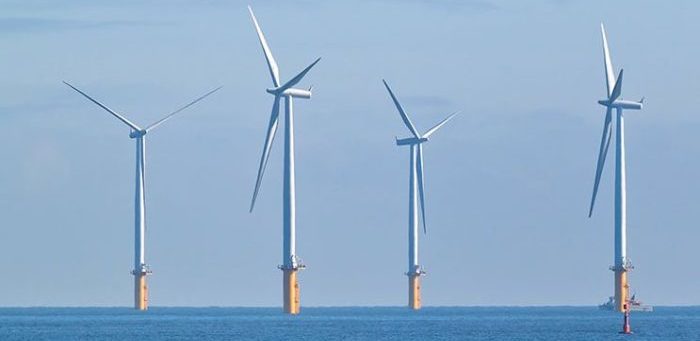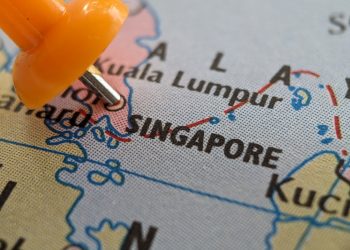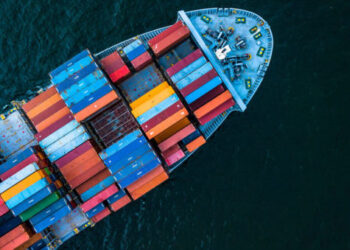Ten years ago the energy industry was focused on ‘peak oil’, while the shale gas revolution in the US had yet to start. As 2017 begins, what are the mega-trends that will shape the upcoming decades? BP’s head of long-term planning Dominic Emery identifies what lies ahead, from the rapid growth in renewables to changing demographics.
1. Energy transitions and the dominant fuel
Over time the energy sector experiences major transitions. For centuries, wood was the dominant fuel, then coal and now oil. As the 21st century develops, gas is now growing faster than any other fossil fuel – and renewables faster still.
With these changes in energy types, allied with sharp changes in prices, you have a complex scenario. The world is changing dramatically: from a supply and demand perspective, a geopolitical perspective and, importantly, from a climate policy perspective. The 2015 Paris agreement, which aims to keep the global temperature rise this century to well below 2°C, will dictate the speed of these transitions.
2. Oil supply
Over the past two decades, the energy world has moved from a situation where oil supply would peak and decline, to a situation where oil is so plentiful it has driven prices sharply downwards. That means a change in thinking is needed.
The focus is now much more around peak oil from a demand side; that there will be a period when demand for oil will peak and then gradually start to decline. Broad consensus suggests that this ‘peak oil’ window is most probably somewhere between 2025 and 2040, but there is considerable uncertainty surrounding this.
3. Gas supply
Natural gas resembles oil in being plentiful but differs in being used mainly for power and industry rather than transport. It has also tended to be traded within regions rather than across a single global market. However, this is changing – the amount of natural gas traded across borders is increasing as liquefied natural gas (LNG) surpasses pipeline imports as the dominant form of traded gas in the next 20 years.
As with oil, there is a lot of gas available very cheaply. Nowhere in our demand forecasts for the next few decades do we see gas peaking, unlike oil. Of course, from a carbon perspective, it has half the CO₂ emissions of coal when burnt to produce power.
4. Growth of renewables
BP is preparing for a world where power comes increasingly from renewable sources. Wind and solar power have been growing faster than fossil fuels, although from a low base and with the benefit of government subsidies in many regions. Now, in many situations, they are becoming competitive with fossil fuels and are poised to deliver substantial shares of energy.
The growth of renewables has exceeded pretty much all forecasts. There has been double-digit growth for wind and solar in the past few years and because the manufacturing costs have come down as well, cost reductions have been about 80% in solar and about 50% in wind. However, what that ignores is the cost of intermittency because, of course, the sun does not shine all the time and the wind does not blow all the time. Therefore, in many places the existing grid and the existing fossil system are used to back up supply when energy from renewables is not available.
5. Electrification
The transport sector is set to change significantly, with electric vehicles, driverless – or autonomous – vehicles and new types of business.
I think there is no forecast anywhere that does not expect demand for electricity to grow and for electricity to become a more important part of the energy mix. There is also a sort of consumer desirability for newer electric vehicles, like the current Teslas, the new Tesla Model 3 that will be coming out at a much more competitive price and the BMW i8.
I think the interesting area is the combination of vehicle electrification with new methods of mobility, car-pooling and ride-sharing such as we are seeing with the likes of Hailo and Uber. And the impact of vehicle autonomy could be enormous but the uncertainty range is large.
6. Changes in demand
The demographics of emerging economies and the demands of millennials – those born post-1980 – are likely to change consumption and work patterns. In the older economies, patterns of demand are changing with the generations. There is virtually no energy growth in the OECD (Organization for Economic Cooperation and Development) countries, particularly because of efficiency gains.
Strong economic growth will mean the emerging economies – the non-OECD countries – are likely to account for nearly all of the energy growth in the coming decades.
Then I think there are also the changing demands of the millennial generation. They are changing their consumption patterns and their working patterns. A lot of that will be enabled more digitally than in the past, and in ways that we possibly have not even thought of yet.
Bob Dudley, group chief executive, and Spencer Dale, group chief economist, will host a live webcast on Wednesday 25 January to mark the publication of the BP Energy Outlook – 2017 edition.
Source: BP






























































